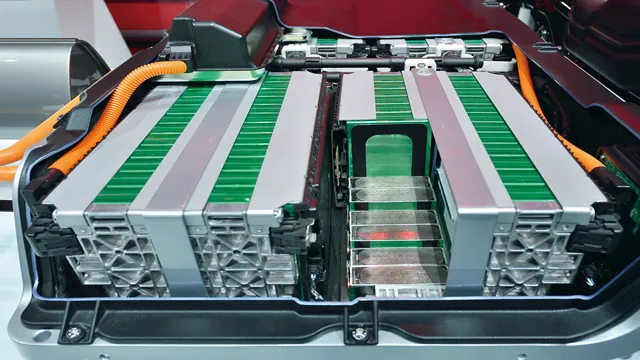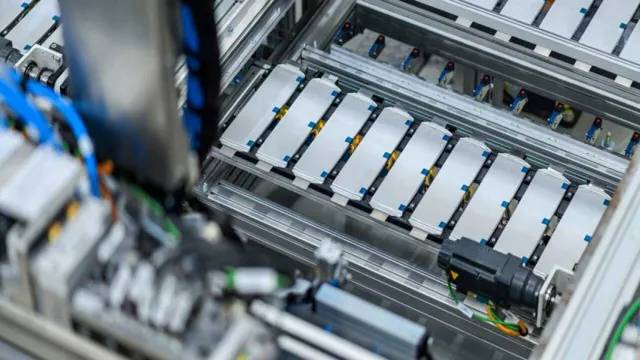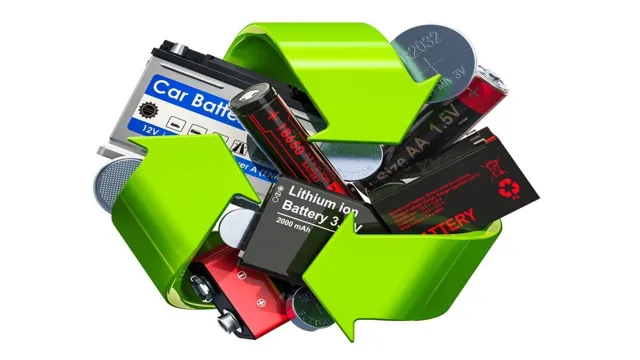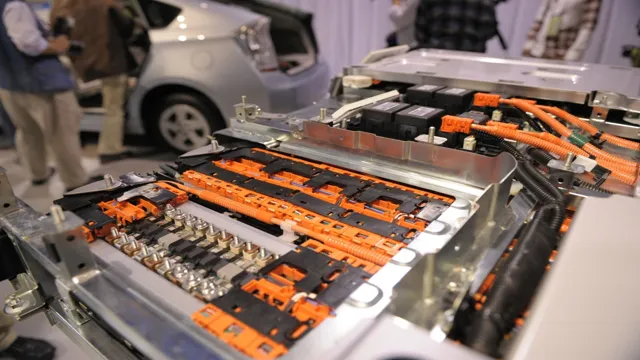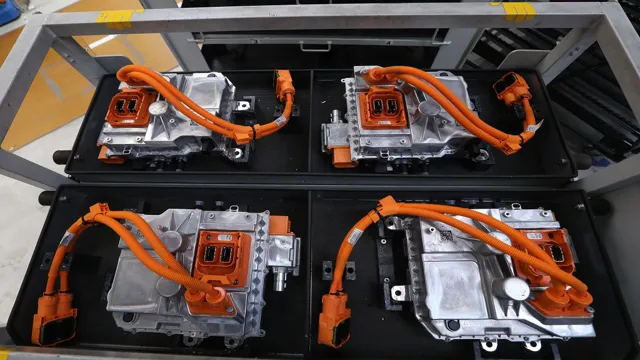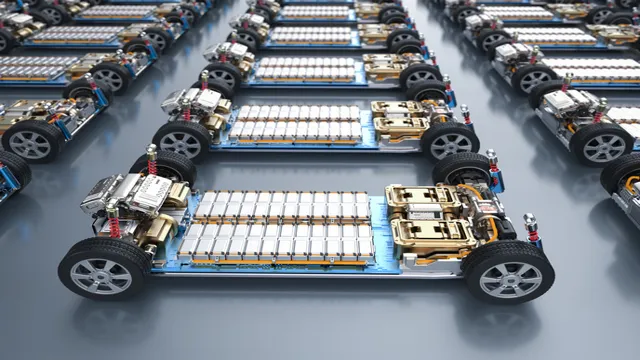Revolutionizing Transportation: The Surprising Benefits of Electric Car Battery Usage
Have you ever wondered how electric cars use their batteries? As more and more people consider making the switch to electric vehicles, it’s important to understand the basics of how these cars function. One of the key factors in the success of electric cars is the battery technology they rely on. In fact, the battery is the most vital component in an electric vehicle.
It is responsible for powering the car’s motor and all other electronic systems. But how exactly does an electric car battery work, and what factors determine how it is used during driving? In this blog, we will explore the various ways that electric car batteries are utilized to keep the vehicle running smoothly, and how these batteries compare to traditional gasoline engines in terms of efficiency and reliability. By the end, you’ll have a better understanding of the role batteries play in powering the cars of the future.
Global Electric Car Adoption Rates
Electric car battery usage has been increasing rapidly, with global adoption rates for electric cars climbing steadily over the past few years. According to recent data, electric car sales experienced a 41% increase in 2020 despite the pandemic, indicating a growing interest in electric vehicles. In fact, some countries have set ambitious targets to phase out the production of gas-powered cars in the near future.
As electric car adoption rates continue to rise, so too will the usage of electric car batteries. Electric car batteries are fundamental to the success of these vehicles, and manufacturers are investing in new technology to improve battery performance, charging times, and overall longevity. With the rise of electric car battery usage, there is also an increasing demand for recycling and repurposing electric car batteries once they reach the end of their lifecycle.
As the world moves towards more sustainable energy solutions, electric car battery usage is set to play a major role in shaping the future of transportation.
Data on Global Electric Car Sales
According to recent data, the global adoption rate of electric cars is on the rise. In the last few years, the number of registered electric cars worldwide has grown from about 17,000 in 2010 to over 2 million by 2019, with China having the largest electric car market globally.
In 2019, more than 1 million electric cars were sold worldwide, and by 2025, it is predicted that the number of electric cars on the road will reach 250 million. With the increasing concerns about climate change and the negative impact of traditional gasoline-fueled cars on the environment, more people are opting for electric cars.
Also, as technology advances, electric cars are becoming more affordable and accessible to a broader range of people. It is clear that electric car adoption rates are going to continue to soar, and the future of transportation looks green and sustainable.
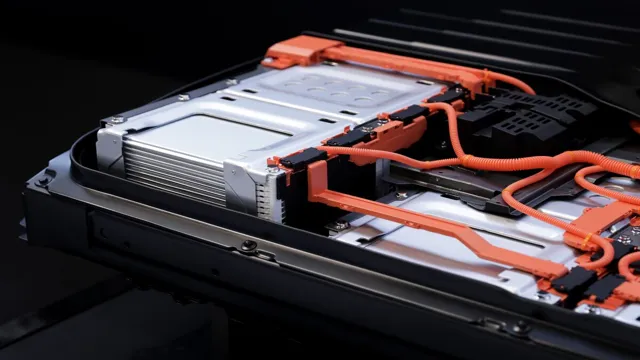
Key Trends in Electric Car Adoption Rates
Global Electric Car Adoption Rates With increasing awareness of the negative impacts of fossil fuel burning on the environment, electric cars have been widely viewed as a viable alternative for reducing carbon emissions. As a result, the global electric car market has grown tremendously over the past few years, with sales increasing by 40% in 2020, despite the COVID-19 pandemic. The adoption rates of electric cars have been driven by factors such as government policies promoting the use of eco-friendly vehicles, improvements in battery technology which has led to increased driving range and lower costs, and the rise of electric car-sharing services in major urban areas.
However, the pace of electric car adoption varies greatly across the world, with some countries like Norway having the highest electric car penetration rate at over 70%, while others like India and Russia still lagging behind. Despite this, the trend towards electric cars is expected to continue, driven by the push towards reduced carbon emissions and the increasing affordability and availability of electric vehicles.
Understanding Electric Car Batteries
Electric car battery usage is an essential aspect to consider when purchasing an electric vehicle. Whereas the majority of drivers are familiar with the basic functioning of gasoline engines, electric car batteries function differently. Electric car batteries power the motor and all other electric components in the vehicle.
The batteries’ capacity and remaining range determine the vehicle’s long-distance capability. The electric car’s battery usage depends mainly on driving conditions and driving style, including speed, acceleration, and braking frequency. The battery management system monitors and controls the battery temperature and provides real-time feedback on battery performance and range.
Therefore, drivers must be aware of battery usage to maintain the battery life and optimize driving range.
Types of Electric Car Batteries
Electric car batteries come in different types, and understanding them is vital to choosing the right one for your electric vehicle. The most commonly used battery type is lithium-ion, which offers a high energy density and a longer lifespan compared to other battery types. However, there are also other types like nickel-metal hydride, which are known for their low cost and durability.
Solid-state batteries are another alternative that offers faster charging times and better safety against fires. Still, they are not yet widely available in the market. Each of these battery types has its own advantages and disadvantages, and it’s up to you to weigh the factors that suit your needs best.
A good understanding of the types of batteries and their capabilities is essential in optimizing your electric car’s performance while getting the best value for your money. So if you’re planning to buy an electric car, make sure to research the different battery types and consult with experts to pick the one that fits your lifestyle and budget the most.
Battery Capacity and Range
Electric Car Batteries Electric cars are powered by large, rechargeable batteries that determine their range and performance. The battery capacity or kWh rating refers to the amount of energy stored in the battery, which determines the range and power of the car. Simply put, the higher the battery capacity, the more power and range the car will have.
For example, a car with a 40 kWh battery pack can travel up to 150 miles on a single charge, whereas a car with an 80 kWh battery pack can travel up to 300 miles. It is important to note that driving style, weather conditions, and terrain can also affect the range of an electric car. As battery technology continues to improve, electric cars are becoming more practical and affordable for everyday use.
Battery Lifespan and Maintenance
Electric car batteries are often considered the heart of an electric vehicle (EV) as they determine its overall performance and range. Understanding the lifespan and maintenance of these batteries is vital for EV owners. Most EVs come with Lithium-ion (Li-ion) batteries that have a recharge cycle of around 1000 cycles.
However, the lifespan of these batteries can be extended through proper maintenance. Regular software updates and charging habits can influence battery performance. An EV owner should aim to keep the battery charge between 20-80% to prevent overcharging and undercharging, which can damage the battery.
Additionally, high temperatures can also impact battery life, so it’s essential to park in shady spots and avoid extreme temperatures. Overall, by adopting good charging habits, following the manufacturer’s guidelines, and regular maintenance, an electric car battery can last an average of 8-10 years before needing a replacement.
The Impact of Driving Habits on Battery Usage
Electric car battery usage is greatly impacted by the driver’s habits on the road. One of the biggest factors that affects battery life is acceleration. Aggressive and sudden acceleration can cause the battery to drain faster, while smooth and gradual acceleration can extend the distance you can travel on a single charge.
Another factor to keep in mind is speed. Driving at high speeds can quickly deplete your battery, so staying within the recommended speed limits is important. Additionally, making frequent stops and starts can also use up more energy, as regenerative braking is less effective in this scenario.
By adopting a more eco-friendly driving style, such as coasting to a stop and maintaining a steady speed, it’s possible to optimize your electric car’s battery usage and increase the distance you can travel on a single charge.
City vs Highway Driving
Driving habits can have a significant impact on the battery usage of a vehicle, especially in terms of city vs highway driving. When driving in the city, with stop-and-go traffic and frequent acceleration and deceleration, the battery has to work harder to keep up with the demands of the car’s electrical systems. Conversely, when driving on the highway, the battery has less strain since the car is operating at a more consistent speed for longer periods.
This means that drivers who primarily drive in the city will likely experience faster battery depletion than those who primarily drive on the highway. Therefore, it’s essential to be mindful of driving habits and consider switching up routes to include more highway driving if possible. Ultimately, taking care to use the battery efficiently can not only save money on replacements but also potentially reduce the vehicle’s carbon footprint.
Speed and Acceleration
When it comes to electric vehicles, speed and acceleration can have an impact on battery usage. The faster you accelerate, the more energy your EV consumes. Additionally, maintaining a high speed also requires more energy from the battery.
As a result, aggressive driving habits, such as accelerating quickly and driving at high speeds, can drain your EV’s battery quicker than normal. To optimize your battery usage, it’s recommended that you avoid unnecessary acceleration and try to maintain a steady speed while driving. This not only conserves battery life but also promotes safe driving practices.
It’s important to note that different EV models may have varying battery capacities and energy efficiencies, so it’s always best to consult your vehicle’s manual for specific guidelines on how to maximize battery life. By being mindful of your driving habits and taking the necessary steps to conserve energy, you can extend your EV’s range and minimize the frequency of necessary charging sessions.
Maximizing Electric Car Battery Efficiency
Electric car battery usage is a crucial aspect of maximizing efficiency when it comes to electric cars. One of the most important ways to improve battery usage is to keep the vehicle’s weight down. This can be done by reducing the amount of cargo you carry, avoiding unnecessary equipment or accessories, and choosing lighter materials in the manufacturing of the vehicle.
Additionally, maintaining proper tire pressure and reducing excessive idling can also conserve battery life. Another useful tip is to employ regenerative braking, which captures the energy from braking and converts it back into usable energy for the battery. It is important to monitor battery life and charge regularly to ensure optimal performance and avoid draining the battery completely.
Implementing these strategies and maintaining good charging habits can help electric car owners get the most out of their batteries and extend the lifespan of the vehicle.
Conclusion
The use of electric car batteries has revolutionized the automotive industry and paved the way for a cleaner, more sustainable future. Not only do they reduce carbon emissions, but they also offer a smoother and quieter ride for drivers. So next time you’re driving an electric car, remember that your battery is not only powering your vehicle but also helping to power a more sustainable and efficient world.
Now that’s what we call a positive charge!”
FAQs
What is the average lifespan of an electric car battery before it needs to be replaced?
The lifespan of an electric car battery can vary depending on the make and model of the vehicle, but on average, it typically lasts around 8-10 years before needing to be replaced.
Can electric car batteries be recycled or reused?
Yes, electric car batteries can be recycled and many car manufacturers have developed programs to recycle and reuse the batteries once they have reached the end of their lifespan. This helps to reduce waste and protect the environment.
Do colder temperatures affect the performance of electric car batteries?
Yes, colder temperatures can impact the performance of electric car batteries, as it can reduce the battery’s range and overall efficiency. However, many electric cars are designed with features to help mitigate this issue, such as battery heating systems.
How does driving style impact the usage of an electric car battery?
Driving style can have a significant impact on the usage of an electric car battery. Aggressive or high-speed driving can quickly drain the battery, while more cautious and efficient driving can help to conserve energy and extend the battery’s range.

